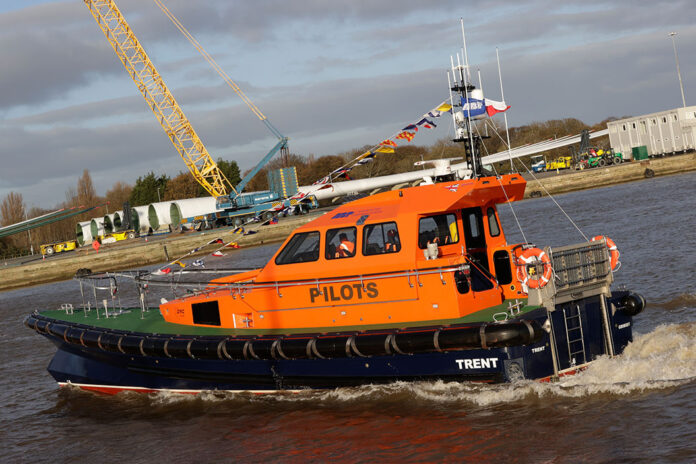Associated British Ports (ABP), the UK’s largest port operator, has announced a significant capability upgrade programme for its latest series of pilot launches.
These launches, built by UK-based Goodchild Marine Services Limited, are already highly capable assets. The upgrades, incorporating feedback from ABP’s pilots and marine teams, further enhance the safety, effectiveness, and sustainability of the vessels.
The enhancement programme includes expanding the fleet of larger vessels from three to five, replacing older vessels averaging around 25 years.
“ABP’s marine capability is essential to fulfilling our mission of Keeping Britain Trading. Making sure that this capability is delivered in a way that continually improves safety, effectiveness and sustainability is key and today’s announcement is a further example of our commitment to doing just that,” stated Paul Bristowe, ABP’s chief of Staff and senior executive responsible for marine and safety.
The ORC pilot boat range, featuring a beak bow planing-hull design, has demonstrated substantial improvements in seakeeping, crew safety, comfort, handling, fuel efficiency, and emissions reduction, aligning with the latest regulations.
Produced by Goodchild Marine Services Limited, the launches are highly capable assets further improved by incorporating suggestions from ABP’s pilots and marine teams. This collaborative approach showcases an innovative vessel development strategy with input from all stakeholders.
This announcement is part of a broader, substantial programme of marine improvements by ABP, including upgrades to Protection Equipment, Pilot Portable Units, new VTS facilities, and new facilities at Grimsby and Barry. The capability upgrade programme pertains to the US$13+ million purchase of a nine-vessel ORC craft fleet from Goodchild Marine.
Moreover, the fleet composition will change from six 136 vessels and three larger 171 craft to four 136 and five 171 craft, incorporating various practical improvements suggested by marine crews and pilots. Six vessels have already entered service, demonstrating their value not only in their primary pilotage role but also by enhancing maritime safety.







